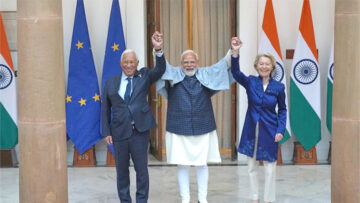Kalpona Akter, Founder and Executive Director of the Bangladesh Center for Workers Solidarity and a labour activist, has garnered international acclaim for her relentless dedication to labour rights, including the prestigious Alison Des Forges Award for Extraordinary Activism from Human Rights Watch.
In a recent dialogue with Apparel Resources, Kalpona Akter shared her insights on the newly instituted 18-point agreement designed to enhance working conditions and create a more equitable workplace for labourers amidst the unrest witnessed in September.
Understanding the 18-point
The 18-point agreement, while a significant step, serves primarily as a short-term solution rather than a comprehensive remedy for the systemic issues that plague the garment industry. It is merely a stopgap measure, lacking the depth required to address the challenges deeply impacting the industry.
This agreement was necessary to respond to the central demands raised by workers, but it lacks a thorough roadmap for long-term reforms. The provisions encapsulated in this agreement target pivotal concerns, including wage enhancements, work-life balance and eliminating workplace discrimination. Yet, fundamental rights such as maternity leave and protection against arbitrary layoffs should not have been negotiable demands; they should have been standard legal entitlements.
On the contrary, the historical context of worker advocacy plays a significant role in the making of the 18-point agreement. Workers have historically faced harassment when advocating for their rights. This reality underscores our call for a centralised approach that empowers workers to express their demands without fear of retaliation. A robust framework that respects labour rights is imperative for ensuring that workers’ voices are heard amidst the ongoing turmoil.
Impact at the ground level
Now, if we are bringing the discussion to the table on whether the new provisions benefit workers on the ground, then one thing must be acknowledged: communication of demands in certain key regions such as the Ashulia belt has seen improved responses from factories. However, while most factories in Ashulia have addressed the demands adequately, other areas like Gazipur still face significant communication gaps.
Achieving compliance with this agreement is not just a matter of justice for workers; it is also crucial for the factories’ sustainability. When workers feel respected and valued, their productivity naturally rises, fostering a healthier work environment.
Perceptions of financial burden on exporters
A contentious point of discussion is the perceived financial burden the new agreement places on exporters. Increase in wage standards should not be seen as a detriment to profitability. The argument that raising the minimum wage is a financial burden for exporters is misleading. With current dollar exchange rates and rising garment prices, I believe that factories can absorb increased costs without jeopardising profitability.
Addressing broader worker concerns
Despite the agreement’s progress, there are profound challenges that still remain unaddressed. This isn’t a special achievement; it’s a reflection of a long-standing crisis in which workers are systematically deprived of their rights. Despite ensuring reasonable working hours, job security, addressing of wages in line with inflation and enhanced protection against gender-based violence, women are still not getting equal rights as men in the factories. In some cases, getting a promotion for a man is easier than for any woman – these things deserve attention where there’s a lot of work to be done.
Furthermore, recognising the significance of facilitating unionisation among workers is crucial for driving meaningful change. Trade unions ought to serve as a powerful instrument for positive transformation; however, the existing obstacles to their establishment must be removed. This creates a vision for a future where workers can genuinely express their concerns and advocate for their rights.
A message for sustainable growth
I therefore seek to emphasise a crucial message for all stakeholders in Bangladesh’s garment industry: for this sector to thrive sustainably and remain profitable, it is essential to treat workers with dignity and respect. Including workers in conversations about growth and success is not just beneficial; it is vital for creating a resilient industry. Neglecting their voices in discussions about improvements will only impede our collective progress. I urge brands and consumers alike to prioritise ethical practices over mere cost considerations. Let’s work together towards a more sustainable future for everyone involved!
18-point demands of the workers are
|








